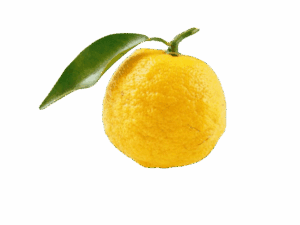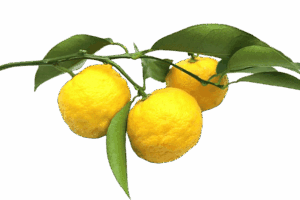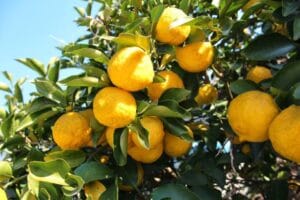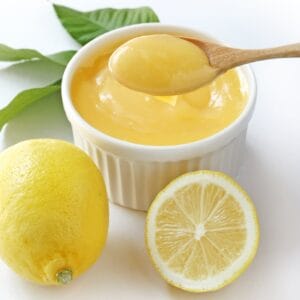Yuzu (Citrus junos), a fragrant citrus fruit native to East Asia, has captured global interest not only for its zesty, aromatic flavor but also for its wide range of science-backed health effects. Yuzu benefits include powerful antioxidant and anti-inflammatory properties, a rich supply of vitamin C, and bioactive compounds that support immune health, heart function, and skin vitality. As researchers continue to explore its therapeutic potential, yuzu is emerging as a true citrus superfruit with remarkable promise.
Rich Source of Antioxidants
Unlike many other citrus fruits, yuzu boasts a unique profile of antioxidants that includes not only vitamin C but also rare flavonoids such as hesperidin and naringin. These compounds exhibit potent anti-inflammatory and vasoprotective effects, which help improve blood circulation and reduce the risk of cardiovascular damage. Additionally, the synergy between these flavonoids and carotenoids in yuzu enhances its ability to neutralize free radicals more efficiently than standard citrus varieties.
Moreover, yuzu contains a distinctive range of volatile oils and phenolic compounds that contribute to its antioxidant power. These substances not only amplify the fruit’s ability to combat oxidative stress but also provide antimicrobial benefits, supporting immune health. The combination of these antioxidants makes yuzu a particularly effective natural agent in protecting cells from DNA damage, a critical factor in aging and the development of chronic diseases.
In comparison to other antioxidant-rich fruits, yuzu’s balanced concentration of hydrophilic (water-soluble) and lipophilic (fat-soluble) antioxidants allows it to offer comprehensive protection throughout the body’s aqueous and lipid environments. This unique antioxidant composition makes yuzu especially valuable in promoting overall cellular health and preventing inflammation-driven conditions.
Anti-Inflammatory Properties
Yuzu contains a distinctive profile of flavonoids and essential oils that contribute to its potent anti-inflammatory action. Notably, yuzu is rich in limonene and gamma-terpinene, compounds that have been found to inhibit pro-inflammatory enzymes such as COX-2 and reduce the production of inflammatory cytokines. This unique combination helps yuzu not only to soothe acute inflammation but also to potentially mitigate chronic inflammatory pathways that are often linked to diseases like arthritis and cardiovascular conditions.
Furthermore, yuzu’s peel contains higher concentrations of these bioactive compounds compared to its juice, making it an exceptional source for natural anti-inflammatory agents. The synergistic effect of these compounds enhances antioxidant capacity, which further supports the body’s defense against oxidative stress—a key driver of inflammation. This dual action of both reducing inflammatory mediators and neutralizing free radicals sets yuzu apart as a valuable fruit in managing inflammation more effectively than many conventional sources.
Emerging research also suggests that the anti-inflammatory properties of yuzu may extend to modulating gut health, by influencing the gut microbiota composition in ways that reduce systemic inflammation. This gut-mediated effect is particularly important since chronic low-grade inflammation originating from the digestive system is linked to numerous metabolic and autoimmune disorders.
May Support Cardiovascular Health
Yuzu extract has been observed to improve blood circulation and reduce platelet aggregation, which can help prevent arterial plaque formation and lower the risk of stroke or heart attack. What sets yuzu apart from other citrus fruits is its rich profile of unique flavonoids, such as hesperidin and naringin, which exhibit potent antioxidant and anti-inflammatory properties. These compounds contribute not only to the protection of blood vessels but also to the modulation of lipid metabolism, helping to maintain healthy cholesterol levels.
Moreover, yuzu contains a high concentration of vitamin C, significantly more than common citrus fruits like oranges or lemons. This vitamin C content supports endothelial function—the delicate lining of blood vessels—by enhancing nitric oxide production, which promotes vasodilation and better blood flow. The synergistic effect of these bioactive substances in yuzu may provide comprehensive cardiovascular protection by reducing oxidative stress and improving vascular flexibility.
Potential Anti-Anxiety and Mood-Enhancing Effects
Beyond general aromatherapeutic effects, yuzu essential oil contains a distinctive profile of bioactive compounds such as limonene, gamma-terpinene, and linalool, which are known for their calming and mood-regulating properties. Limonene, in particular, is abundant in yuzu and has been demonstrated in various studies to exert anxiolytic effects by modulating neurotransmitter systems involved in stress response, such as serotonin and dopamine pathways. This makes yuzu uniquely effective compared to other citrus oils, which may have different chemical compositions and thus varied psychological impacts.
Moreover, yuzu’s rich antioxidant content, including flavonoids and vitamin C, contributes to its mood-enhancing benefits by reducing oxidative stress—a factor increasingly linked with anxiety and depressive disorders. The synergy between these antioxidants and volatile compounds in yuzu essential oil may help improve neural plasticity and resilience, promoting a more balanced emotional state. This multifaceted action positions yuzu not only as a pleasant fragrance but also as a promising natural adjunct for managing anxiety and elevating mood in everyday life.
Skin Health and Anti-Aging
In addition to vitamin C, yuzu contains a rich profile of flavonoids and antioxidants such as hesperidin and naringin, which have been shown to reduce inflammation and combat oxidative stress—two major contributors to premature skin aging. These compounds help neutralize free radicals, protecting skin cells from environmental aggressors like pollution and UV radiation, thereby slowing down the breakdown of collagen and elastin fibers.
Moreover, yuzu’s essential oils, particularly limonene, not only provide a refreshing aroma but also possess antimicrobial and soothing properties that can help maintain a balanced skin microbiome and reduce redness or irritation. Unlike many citrus fruits, yuzu’s unique chemical composition offers a gentle yet potent effect, making it suitable for sensitive skin types prone to aging signs.
Research also suggests that the bioactive compounds in yuzu stimulate skin hydration by enhancing the skin’s natural barrier function. This increased moisture retention contributes to a plumper, more youthful appearance while minimizing the formation of fine lines and dryness, common issues in aging skin. Overall, yuzu stands out as a multifaceted natural ingredient with promising benefits for maintaining skin vitality and delaying age-related changes.
Antimicrobial Properties
Yuzu’s antimicrobial efficacy is largely attributed to its rich composition of bioactive compounds such as limonene, linalool, and citral, which exhibit strong inhibitory effects against bacteria and fungi. Unlike many other citrus oils, yuzu contains a distinctive profile of flavonoids and phenolic acids that enhance its ability to disrupt microbial cell membranes, leading to increased permeability and ultimately cell death. This unique chemical makeup not only broadens its spectrum of antimicrobial action but also reduces the likelihood of resistance development compared to synthetic preservatives.
Moreover, the synergy between yuzu’s volatile compounds and its non-volatile components intensifies its antimicrobial potency. Studies have shown that the combination of essential oils and flavonoid-rich extracts from yuzu peel can effectively inhibit foodborne pathogens such as Listeria monocytogenes, Escherichia coli, and Salmonella species. This dual-action mechanism makes yuzu an exceptional candidate for natural food preservation, as it can both extend shelf life and enhance food safety without compromising flavor or quality.
Improves Respiratory Health
Yuzu stands out among citrus fruits due to its rich concentration of unique bioactive compounds, such as limonene, linalool, and other volatile terpenes, which contribute to its distinctive aroma and therapeutic effects. These compounds are known for their anti-inflammatory and antioxidant activities, which may help reduce inflammation in the respiratory tract and support overall lung function. Unlike more common citrus fruits, yuzu’s complex blend of essential oils appears to offer a synergistic effect, enhancing its potential to ease breathing difficulties and soothe irritated mucous membranes.
Moreover, yuzu contains high levels of vitamin C and flavonoids, which play a crucial role in strengthening the immune system and protecting against respiratory infections. Vitamin C is well-documented for its ability to boost immune defense, while flavonoids can modulate inflammatory responses and reduce oxidative stress within the lungs. This combination makes yuzu a valuable natural adjunct for those prone to respiratory ailments, particularly during cold and flu seasons.
In traditional East Asian practices, the inhalation of yuzu vapors during warm baths or steam therapies is believed to open nasal passages and facilitate easier breathing. Emerging research supports that these volatile compounds may act as natural expectorants, helping to loosen mucus and clear the airways more effectively than other herbal remedies. While further clinical studies are needed to fully understand these mechanisms, the distinct chemical profile of yuzu positions it as a promising natural resource for respiratory health support.
May Aid in Weight Management
In addition to naringenin, yuzu contains a distinct combination of citrus flavonoids, including hesperidin and eriocitrin, which work synergistically to enhance antioxidant activity and support metabolic health. These compounds have been shown to reduce inflammation and oxidative stress—two factors that often contribute to metabolic dysfunction and weight gain. The high levels of vitamin C in yuzu further support this process by promoting healthy adipose tissue function and improving overall energy metabolism.
What sets yuzu apart from other citrus fruits is its unique essential oil profile, rich in limonene and other monoterpenes, which have been linked to appetite regulation and increased fat oxidation. Studies suggest that these aromatic compounds may stimulate thermogenesis, the process by which the body burns calories to generate heat, thereby potentially aiding in weight management. This distinctive blend of bioactive substances makes yuzu a promising natural ally for those seeking metabolic support beyond standard citrus fruits.
Moreover, yuzu’s low glycemic index and fiber content contribute to better blood sugar control, reducing insulin spikes that can lead to fat storage. This balanced nutrient composition helps modulate appetite and sustain energy levels, supporting healthier eating habits. While more human clinical trials are necessary to fully validate these effects, the unique phytochemical makeup of yuzu offers a compelling basis for its role in weight management strategies.
Promotes Digestive Health
Yuzu, like many citrus fruits, contains natural fibers and bioactive compounds that stimulate digestion and help regulate gut motility. Its acidic nature may also support the production of digestive enzymes.
What sets yuzu apart from other citrus fruits is its high concentration of unique flavonoids and polyphenols, such as hesperidin and naringin. These compounds have been shown to exhibit anti-inflammatory and antioxidant effects within the gastrointestinal tract, helping to reduce digestive discomfort and protect the gut lining from oxidative stress. Additionally, these bioactive substances can enhance the balance of gut microbiota, promoting a healthier digestive environment compared to other more common citrus varieties.
Moreover, yuzu contains a significant amount of citric acid and essential oils, which not only contribute to its distinct aroma and flavor but also stimulate saliva and gastric juice secretion. This stimulation supports the breakdown of food particles more efficiently and improves nutrient absorption. The synergistic effect of yuzu’s fibers, organic acids, and bioactive compounds makes it a potent natural aid for maintaining optimal digestive health, especially for those prone to sluggish digestion or mild gastrointestinal inflammation.
Neuroprotective Effects
Yuzu’s essential oils, particularly limonene and linalool, contribute additional neuroprotective mechanisms by modulating neurotransmitter activity and promoting neurogenesis. These volatile compounds have been linked to improved mood regulation and reduced anxiety, suggesting that yuzu may offer holistic support for brain health by enhancing both cognitive function and emotional well-being. This combination of unique flavonoids and essential oils makes yuzu a distinctive natural agent with promising applications in preventing neurodegenerative diseases such as Alzheimer’s and Parkinson’s.
In summary, the neuroprotective effects of yuzu extend beyond its antioxidant capacity, encompassing anti-inflammatory actions, neurogenesis stimulation, and mood enhancement. The synergistic interaction of its phytochemicals positions yuzu as a valuable natural supplement for supporting long-term brain health, particularly in aging populations who face increased risks of cognitive impairment.
Nutritional Value of Yuzu (per 100 grams)
Calories: 20–30 kcal
Carbohydrates: 7.6 g
- Sugars: 2.5–4.0 g
- Dietary Fiber: 1.4–2.0 gProtein: 0.8 g
Fat: 0.2 g
- Saturated Fat: 0.0 g
- Monounsaturated Fat: 0.03 g
- Polyunsaturated Fat: 0.05 gCholesterol: 0 mg
Vitamins:
Vitamin A: 20 µg (2% of the Daily Value)
Vitamin C: 40–60 mg (45–66% of the Daily Value)
Vitamin E: 0.2 mg (1% of the Daily Value)
Vitamin K: 0.5 µg (1% of the Daily Value)
Folate (Vitamin B9): 10 µg (3% of the Daily Value)
Minerals:
Calcium: 20 mg (2% of the Daily Value)
Iron: 0.2 mg (1% of the Daily Value)
Magnesium: 8 mg (2% of the Daily Value)
Potassium: 130–160 mg (3–4% of the Daily Value)
Phosphorus: 15 mg (1% of the Daily Value)
Sodium: 1 mg (0% of the Daily Value)
Other Nutrients:
Water content: ~89 g
Antioxidants: High levels of vitamin C, flavonoids (hesperidin, naringin), limonoids, and essential oils, which offer anti-inflammatory and immune-supporting benefits.
Conclusion
Yuzu is more than just a flavorful addition to East Asian cuisine—it’s a functional food with scientifically backed health benefits. From boosting the immune system to supporting heart and skin health, yuzu’s nutritional and phytochemical profile makes it a valuable addition to a healthy diet. Further human clinical trials are encouraged to validate these benefits and explore its full therapeutic potential.
Recipe
 If you’re a fan of classic lemon curd but eager to explore new flavors, Jamie Oliver’s recipe for lemon curd with yuzu offers an exciting twist. Yuzu, a fragrant citrus fruit originating from East Asia, brings a unique tartness and floral aroma that elevates the traditional curd. In this recipe, Jamie combines the creamy richness of traditional lemon curd with the distinctive zing of yuzu, creating a versatile spread perfect for toast, pastries, or as a filling for desserts. Whether you’re a seasoned cook or a curious beginner, this guide provides step-by-step instructions to help you master this delightful fusion of flavors.
If you’re a fan of classic lemon curd but eager to explore new flavors, Jamie Oliver’s recipe for lemon curd with yuzu offers an exciting twist. Yuzu, a fragrant citrus fruit originating from East Asia, brings a unique tartness and floral aroma that elevates the traditional curd. In this recipe, Jamie combines the creamy richness of traditional lemon curd with the distinctive zing of yuzu, creating a versatile spread perfect for toast, pastries, or as a filling for desserts. Whether you’re a seasoned cook or a curious beginner, this guide provides step-by-step instructions to help you master this delightful fusion of flavors.
Contraindications and Precautions When Consuming Yuzu
While yuzu (Citrus junos) is generally safe and well-tolerated when consumed in moderate amounts, there are a few contraindications and precautions to consider:
1. Citrus Allergies
Individuals who are allergic to citrus fruits such as oranges, lemons, or grapefruits may also react to yuzu. Symptoms can include:
Skin rashes or itching
Swelling of the lips or mouth
Gastrointestinal discomfort
In severe cases, anaphylaxis (rare)
Advice: If you have a known citrus allergy, consult a healthcare provider before trying yuzu.
2. Gastroesophageal Reflux Disease (GERD)
Due to its high acidity, yuzu may exacerbate symptoms of acid reflux, heartburn, or GERD in sensitive individuals. Citrus fruits can relax the lower esophageal sphincter and increase stomach acid levels.
Advice: People with GERD or frequent heartburn should limit yuzu intake or avoid it altogether.
3. Medication Interactions
Although not as extensively studied as grapefruit, yuzu also contains furanocoumarins and flavonoids that may interfere with the metabolism of certain medications by inhibiting cytochrome P450 enzymes (especially CYP3A4). This can lead to increased blood levels of medications, such as:
Statins (for cholesterol)
Calcium channel blockers (for blood pressure)
Certain immunosuppressants
Benzodiazepines and other sedatives
Advice: If you’re taking prescription medications, especially those metabolized by the liver, consult your doctor before regularly consuming yuzu or yuzu juice.
4. Dental Health Concerns
The high acidity of yuzu can erode tooth enamel over time, especially if consumed frequently as juice or in concentrated forms.
Advice: Rinse your mouth with water after consuming yuzu or use a straw to minimize contact with teeth.
5. Pregnancy and Breastfeeding
There is limited scientific data on the safety of high-dose yuzu consumption during pregnancy or breastfeeding. While occasional culinary use is likely safe, excessive intake of citrus essential oils or extracts should be avoided without medical supervision.
Advice: Pregnant and breastfeeding women should stick to food-grade yuzu products and consult a healthcare provider before taking supplements or extracts.
Fascinating Facts About Yuzu
- Yuzu Can Survive Freezing Temperatures
Unlike most citrus fruits, yuzu is remarkably cold-resistant. It can survive temperatures as low as -9°C (15°F), which is why it thrives in the colder mountainous regions of Japan, Korea, and China. This resilience makes it one of the few citrus species that can be grown in temperate climates.
- It Takes 10 Years to Fruit from Seed
Growing yuzu from seed requires serious patience—it can take up to 10 years before the tree bears fruit. Because of this, commercial growers often graft yuzu onto faster-growing rootstock to accelerate fruit production.
- Yuzu Baths Are a Japanese Winter Solstice Ritual
In Japan, it is traditional to take a hot yuzu bath (yuzuyu) during the winter solstice. Whole fruits are floated in hot water, releasing their fragrant oils. This ritual is believed to ward off colds, boost circulation, and bring good fortune.
- The Peel Is More Valuable Than the Juice
Unlike lemons or oranges, yuzu juice is extremely tart and sparse. In Japanese and Korean cuisine, the peel and zest are often more prized than the juice. The fragrant rind is used in sauces, soups, desserts, and teas for its intense citrusy aroma.
- Yuzu Is Nearly Impossible to Import Fresh
Because of strict agricultural regulations, especially in the United States and Europe, fresh yuzu fruit is banned or heavily restricted for import due to the risk of spreading plant diseases. As a result, most people outside Asia only encounter yuzu in processed forms like juice, oil, or zest powder.
- It Has a Unique Genetic Origin
Yuzu is a natural hybrid between a mandarin orange (Citrus reticulata) and the Ichang papeda (Citrus ichangensis), a hardy, bitter citrus species. This gives yuzu its cold tolerance and intense aroma—something no other citrus quite replicates.
- It’s a Perfumer’s Secret Ingredient
The complex aroma of yuzu—described as a mix of grapefruit, mandarin, lime, and floral notes—has made it a favorite in luxury perfumery. It’s used to add brightness and a sharp citrus kick to high-end fragrances, especially those with an Asian or spa-like essence.
- It Has Inspired Michelin-Star Dishes
World-renowned chefs, including those with Michelin stars, have incorporated yuzu into gourmet creations—from yuzu foam and yuzu caviar to yuzu-marinated seafood and even yuzu desserts with liquid nitrogen. Its sharp acidity and exotic profile give dishes a creative edge.
- Samurai Used Yuzu Baths Before Battle
According to Japanese folklore, samurai warriors used to bathe in yuzu-infused hot water before going into battle. The belief was that the fruit’s invigorating scent and warming properties would cleanse the body, sharpen the senses, and mentally prepare the fighter for combat. Citrus power-up, feudal-style.
- Yuzu Is So Rare in the West, It Has a Black Market
Fresh yuzu is banned from import into countries like the U.S. due to pest concerns. This scarcity has created a kind of “citrus black market,” where chefs and specialty grocers illegally import or grow yuzu in secret. Some underground yuzu can cost $10–$20 per fruit.
- Its Tree Is Covered in Sharp Thorns
Unlike most citrus trees, yuzu trees grow huge, menacing thorns—some over 3 cm long. Farmers need to wear protective clothing to harvest the fruit, and the tree itself has been jokingly called “the cactus of citrus.” Nature really didn’t want you to steal this one.
- Yuzu Scent Is Believed to Repel Evil Spirits
In traditional Japanese customs, yuzu’s aroma was said to purify spaces and ward off evil. It was often used in temples and ritual baths. Some even believed that bathing with yuzu could protect against curses or bad luck in the coming year. Smells like citrus… and spiritual insurance.
- You Can’t Really Eat It Like an Orange
Yuzu’s pulp is extremely seedy, dry, and sour—not meant for casual snacking. If you try to peel and eat it like an orange, you’ll be disappointed. The fruit is mostly used for its peel and juice, which are culinary gold, but the inside is basically a citrus minefield.
- It’s Used in Dog Shampoo and Mosquito Repellent
Thanks to its powerful essential oils, yuzu has found its way into pet grooming products and natural insect repellents in Japan. Apparently, dogs that smell like yuzu are not only clean but also naturally mosquito-resistant.
- Yuzu Trees Can Live Over 100 Years
Some yuzu trees in Japan are centuries old and still produce fruit! This longevity is unusual for citrus trees, which typically live 30–50 years. Certain sacred yuzu trees are considered living monuments.
- Yuzu Is Part of a “Citrus Family Mystery” That Has Confused Botanists for Decades
The exact origins and classification of yuzu have puzzled scientists due to its hybrid nature and genetic quirks. It’s sometimes called a “living fossil” among citrus fruits for retaining ancient traits lost in other species.
- Yuzu Is Sometimes Referred to as the “Citrus Dinosaur”
Because of its primitive genetic makeup and survival through millennia of climate change, some botanists call yuzu the “dinosaur of citrus fruits”—a living link to ancient citrus species.
- Yuzu Flowers Bloom in Winter
Unlike most citrus fruits that flower in spring or summer, yuzu trees bloom in late autumn to winter, releasing their delicate and fragrant flowers when most other plants are dormant.
To explore more plants, please visit our page about plants
Reference:
- Kyung Mi Yoo , Ki Won Lee, Jae Bok Park, Hyong Joo Lee, In Kyeong Hwang – Variation in major antioxidants and total antioxidant activity of Yuzu (Citrus junos Sieb ex Tanaka) during maturation and between cultivars. DOI: 10.1021/jf0498158
- Ramesh Kumar Saini , Arina Ranjit – Bioactive Compounds of Citrus Fruits: A Review of Composition and Health Benefits of Carotenoids, Flavonoids, Limonoids, and Terpenes doi: 10.3390/antiox11020239
- Tamaki Matsumoto, Tetsuya Kimura, Tatsuya Hayashi – Aromatic effects of a Japanese citrus fruit-yuzu (Citrus junos Sieb. ex Tanaka)-on psychoemotional states and autonomic nervous system activity during the menstrual cycle: a single-blind randomized controlled crossover study DOI: 10.1186/s13030-016-0063-7
- Nakazono Yukiko – Studies on Antimicrobial and Antioxidative Substance of Yuzu ( Citrus junos hort . ex Tanaka) Seed -DOI:10.3923/jbs.2006.135.139
- Dong-Hun Lee – Citrus junos Tanaka Peel Extract and Its Bioactive Naringin Reduce Fine Dust-Induced Respiratory Injury Markers in BALB/c Male Mice – https://doi.org/10.3390/nu14051101
See the benefits for: Hair , Skin , Heart , Bones , Liver , Brain , Eyes , Kidney , Lungs , Stomach , Gallbladder , Blood vessels, Immune system
Disclaimer:
The information provided in this article is for educational purposes only and does not replace professional medical advice. Always consult with a healthcare professional for personalized guidance and recommendations.
